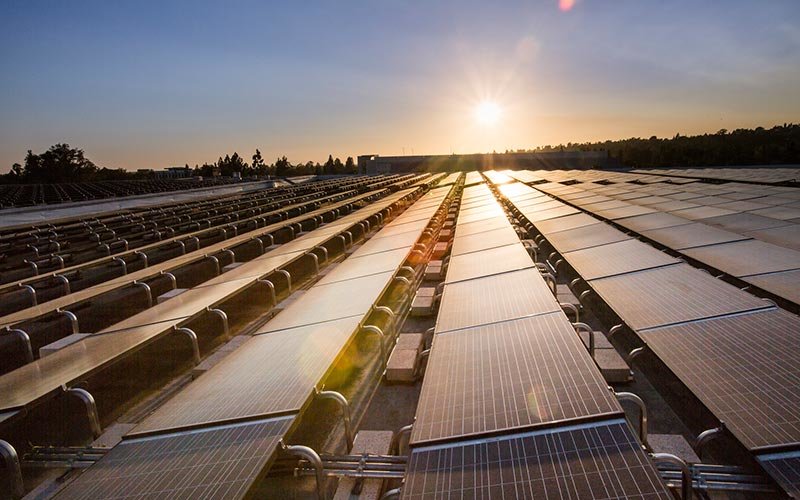
Cal State Fullerton is moving ahead with solar power and expanding the array of solar panels that harness the force of the sun to power lights, computers, air conditioning and other campus equipment.
It’s been four years since the University “threw the switch” for a photovoltaic installation on the rooftops of the Clayes Performing Arts Center, the Kinesiology and Health Science Building and the Eastside Parking Structure.
That one-megawatt installation produces electricity equivalent to eliminating 5,181 passenger vehicles from the road annually and will do so over the next 25 years, saving the campus approximately $9 million in utility savings, said Willem Van der Pol, interim associate vice president for facilities planning and management.
This summer, the campus is expanding that project with an additional 3.30 MW system on the upper decks of the Nutwood and State College Parking structures. An additional installation will be placed in the parking lot of College Park West, the former Western State Law buildings at the corner of State College Boulevard and Dorothy Lane. All three will be canopy systems similar to that installed on the Eastside Parking Structure.
Unlike the earlier installation, which the University owns, this phase is being installed by SunPower in Silicon Valley, under a third-party license and power purchase agreement. Under the agreement, said Van der Pol, the University will purchase the energy from SunPower at below-market utility rates for a period of 19 years and 11 months.
“Our goal is threefold,” explained Van der Pol. “The University will be able to control electric utility cost better; cleaner power reduces our carbon footprint; and combined with battery systems, we will become more independent from our utility provider.”
The project is the latest in a 20-year-plus history of instituting efficient, sustainable and green practices. In addition to the 2012 installation of solar panels, the campus has regularly upgraded its lighting for efficiency, installed low-flow fixtures and irrigation meters, constructed LEED-ranked or equivalent buildings, operated an energy-smart trigeneration plant and, in response to the statewide drought, installed bioswales to retain rainwater and replaced turf with drought-tolerant plants throughout the campus.
CSUF also is hosting this summer’s 15th annual California Higher Education Sustainability Conference, an opportunity for campuses from the California State University, University of California and California Community Colleges systems, as well as private institutions, to share best practices and learn from one another in the fields of campus economic responsibility, social equity and environmental sustainability.